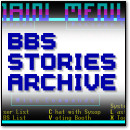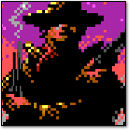Archive for December, 2011
Opening Computers on Christmas Morning
Monday, December 26th, 2011Merry Christmas! Just yesterday, PCMag published a slideshow I created that features family photos of kids receiving computers as Christmas gifts in the 1980s. You’ll see plenty of vintage home PCs and gleeful children to match. Hope you enjoy it.
And now back to your regularly scheduled vacation…
[ Retro Scan of the Week ] An Analog Christmas
Monday, December 19th, 2011The VC&G Christmas Collection
Tuesday, December 13th, 2011
It’s that time of year again: the Yuletide. Instead of writing something new and fresh for the season, I thought I’d dredge through the VC&G archives for Christmas material and collect it all in one place.
Below you will find a list of everything Yule-flavored from this site and my freelance work. There are a couple slideshow gems in there that you don’t want to miss, so check those out if you haven’t already.
I have a soft spot for Christmas, having been raised with the tradition, so this list is for me as much as it is for everyone else. After going through these things again, it’s amazing to see how much Christmas stuff I’ve posted over the years. I hope you enjoy it.
10 Game Console to PC Transformations
Monday, December 12th, 2011When you’re done reading that Computer Space piece I wrote, feel free to mosey on over to PCMag and check out this slideshow of 10 game consoles that could transform into PCs. (The title they gave it is kinda confusing, but the content still stands.)
Most of the console conversions featured in the piece are from the 1980s, but there’s one more recent example in there that might surprise you. Or maybe it won’t, because you guys tend to know a lot more than the average bear. Either way, I hope you enjoy it.
[ Retro Scan of the Week ] Merry Christmas From Nintendo, 1988
Monday, December 12th, 2011 I see great things in your future.
I see great things in your future.
I recently scanned this lovely Nintendo-sponsored Christmas greeting off the back of a 1988 issue of Nintendo Power. You can see the complete magazine back in the full-sized version of the scan (click the image above to see it). In that larger scan, names and addresses have been changed to protect the innocent.
Kinda gives you that warm and fuzzy feeling, doesn’t it?
Discussion Topic of the Week: Did you ever receive a NES (or even a NES game) for Christmas? Tell us about your memories of the occasion.
40 Years of Commercial Video Games / Computer Space
Monday, December 12th, 2011You may not have noticed, but commercial video games turned 40 years old just recently. To celebrate, I’ve written an in-depth history of Computer Space, the first mass-produced video game and the first true arcade video game, which launched in 1971. Those daring enough among you to read over 500 words in one sitting can find the piece over at Technologizer.com. I hope you enjoy it.
[ Retro Scan of the Week ] Sharp Pocket Locker
Monday, December 5th, 2011 Two teen girls compare notes on vampires that attend their high school.
Two teen girls compare notes on vampires that attend their high school.
Ah, the dedicated electronic pocket organizer — an ever-present, seemingly useful device for want of a market.
Since the early 1980s, electronics manufacturers have produced pocket-sized computer gadgets that store databases of phone numbers, addresses, calendar appointments, and not much else. These electronic organizers reached their peak (in terms of number of devices in the market) in the mid-1990s. At that time, the technology involved became cheap enough to market to kids.
Despite manufacturers’ best efforts, such devices have continuously failed to gain widespread use for a simple reason: none have demonstrably improved upon the paper address book. Not even the socially-hungry teen girl market, as targeted by Sharp in this 1995 ad for the Pocket Locker, could push them into the mainstream.
It was only when manufacturers rolled electronic organizer functionality into a more general-purpose device (think palmtop computer, PalmPilot) that the idea of electronically maintaining personal contact records in a mobile setting took off. Address books, calendars, and phone databases became separate programs that lived in a larger ecosystem of applications that could be run on the device.
Most palmtop computer-style PDAs offered significant advantages over the paper organizer. They synchronized with PCs to back up information, and they could use the stored data in conjunction with other programs for more useful effect — for example, you could actually email someone directly from a record stored in your digital address book.
Contrast that experience to the dedicated pocket organizer model, where the the information you entered became trapped in a tiny plastic box with a crummy display and a kludgy interface that would lose its memory if its batteries ran out.
Today, the organizer-as-software clearly won over dedicated units, and anyone with a mobile phone now carries an organizer software suite in their pocket. It’s only one of many functions that cellphones have absorbed on their quest to become the ultimate multipurpose pocket device.
Discussion Topic of the Week: Have you ever used a dedicated electronic pocket organizer device? Tell us about it.










